
Collagen Boosters: Legit or Attempts to Scam Vegans and Vegetarians
Guide to Collagen Boosters
You want to reduce wrinkles or boost your own collagen levels, so you start researching collagen boosters. The problem is that collagen boosters have no evidence to support their lofty claims.
So, what are you supposed to do? This guide will tell you exactly how to get more collagen from natural sources and what other lifestyle changes you can make to look and feel better.
Before we dive in, I'll tease that the single best real food to increase your collagen is a traditionally made bone broth. The most delicious one is made by a brand called Bluebird Provisions.
More on that below. For now, let's get to boosters.
What are Collagen Boosters
Collagen Boosters are supplements that claim to provide nutrients, including glycine, that activate collagen production in your skin to reduce wrinkles. They are a popular vegan or vegetarian alternative to collagen peptides that use ingredients like astaxanthin, ginseng and other botanicals and herbs.
The problem is that there is nothing to support the claims that these products make.

There is zero science for these products in regard to increasing collagen levels. The only thing that does this is real amino acids from animal based sources.
Unfortunately these brands lie to you because it makes them money. It is gross.
How do Collagen Boosters work?
Collagen boosters claim to work by providing nutrients, vitamins and minerals to increase your natural collagen production in your body. The issue is that collagen is made using fibroblast cells which rely on amino acids.
I've yet to see one of these 'booster' products with real amino acids in them. They are usually full of fat and carbs which do not stimulate fibroblasts. For example, see the image below.

Here is the nutrition facts of a popular plant based collagen booster on Amazon. As you can see, this product has high fat, relatively high calories, very low protein at 1 gram and zero vitamin C.
I can't stress enough that you need actual protein and amino acids for collagen production to thrive.
What are the best natural sources of collagen?
The best natural sources of collagen are animal based foods like bone broth, pork rinds, chicken skin, ribs, salmon, sardines, crustaceans and slow cooked meats. These foods contain all of the natural amino acids for gut health, skin health and healing joint pain.
Skin Collagen Booster Common Ingredients
Common ingredients you find in skin collagen boosters are pomegranate extract, camu camu, ginseng, dragonfruit extract, hyaluronic acid, pomegranate, black currant and astaxanthin. Let's quickly outline what each of these do.

Pomegranate Extract
Pomegranate extract is great for heart health because of its ability to control inflammation and oxidative stress around arteries. This can help lower your blood pressure and reduce plaque build up.
Camu Camu
Camu camu is a fruit that is native to the Amazon rainforest that is full of vitamin C.
Ginseng
Ginseng is an herbal supplement that is commonly used in energy drinks and is sometimes marketed as a "collagen booster." While ginseng may have some health benefits, there is no evidence that it can boost collagen production or otherwise improve the health of your skin.
Dragonfruit Extract
Dragonfruit extract is a popular ingredient in many anti-aging and beauty products because it is rich in vitamin C and antioxidants. Some vegans use it to raise iron levels.
Hyaluronic Acid
Hyaluronic acid is a substance that's naturally found in your skin. It helps keep your skin hydrated and plump. As we age, our bodies produce less hyaluronic acid, which can lead to dry, wrinkled skin.
Some people turn to hyaluronic acid supplements as a way to boost their levels of this substance and improve their skin health.
Black Currant
There's no denying that black currants are delicious. But do they actually help boost collagen production? Unfortunately, there's no scientific evidence to support this claim. So while black currants may be a tasty treat, they're unlikely to do much for your collagen levels.
Astaxanthin
Astaxanthin is found in red, purple and blue foods. It is a carotenoid found in algae that is the reason why salmon's skin is pink. There are limited studies in humans that show it may have benefits for reducing oxidative stress.
But we need more research to be certain.
These ingredients are impressive aren't they? Unfortunately, the ingredients highlight a massive issue with health products: greenwashing.
Greenwashing is stuffing ingredients into products because they are seen as 'healthy' and allows manufacturers to make health claims. In many cases, these are simply added to make products seem better for you than they really are.
Collagen boosters are a perfect example of this. Brands see a need for a product: vegan collagen and they reverse engineer a bunch of ingredients that supposedly satisfy the demand.
Since this industry is not tightly regulated, they can sell and label these products without any legitimate evidence they work. They do this to make money.
Looking for a supplement recommendation? Read my guide to finding the best collagen powder for weight loss.
Do collagen boosters work?
There's no evidence to suggest that collagen boosters work the same way that real collagen does. That does not mean they are useless and not good for other things. We don't know because it has not been studied.
There are a ton of these products on the market with good reviews and customers claiming some benefits. If you have the means, are plant based and want to experiment, then try one and see if it works for you.
How do collagen boosters help combat the effects of aging?
Collagen boosters do not directly reduce the effects of aging because it has not been studied. The makers of these products claim that the ingredients are essential for healthy skin, active joints and other connective tissue.
The problem is that these claims are not backed up by anything substantial scientifically.
Are there any side effects to taking a collagen booster?
There are little side effects to taking collagen boosters. Most people report positive experiences but it is always best to do your own research by looking at 3rd party verified reviews from websites like Amazon.
What is the best collagen booster for skin?
The best collagen booster for skin is a traditionally made bone broth because it has all the necessary amino acids along with extra nutrition from electrolytes.
Now if you are plant based, this is not an option and you have to get creative. In this case, I would look for vegan glycine and proline supplements.

Glycine and proline together make up 2/3rds of the structure of collagen protein. One could argue that you may get 2/3rds of the health benefits of collagen by consuming these two amino acids.
While we do not know if this is true, it is where I would look first. Sadly, none of the plant based booster products I have come across use glycine or proline in their formula. It is a huge missed opportunity for them.
When should I use collagen boosters?
Collagen boosters can be included into your daily diet at any time. Simply take the product first thing in the morning on an empty stomach, and if needed a second time based on the dosage that the manufacturer suggests.
Is it too late to start taking collagen?
No, it is never too late to start taking collagen! There are tons of positives with taking collagen, no matter when you start, from hair growth to skin health and gut health.
Do yourself a favor and try eating collagen rich foods first, then think about a supplement.
Closing Thoughts
Don't waste your money on collagen boosters that don't actually have any collagen. While they do contain some ingredients that may help with other things, there is no evidence that they will boost or build collagen.
If you are vegan or vegetarian, there is not much you can do. But if you are ok with meat products then I'd recommend trying Bluebird Provisions Instant Bone Broth, Chicken.
It's the only one with 10 grams of collagen per cup, no added salt, yeast or filler ingredients. You can find them on their site or on Amazon.
Have you tried any of these products? Or want my opinion on a specific brand? Leave a comment and let me know or share our experience.
Disclaimer: The information in this article is for informational purposes only. It is not intended to be used to treat or supplement any pet's diet. Consult your veterinarian or animal health specialist if you have questions about anything related to their food, consumption or health. The statements have not been evaluated by the FDA, USDA or CFIA.

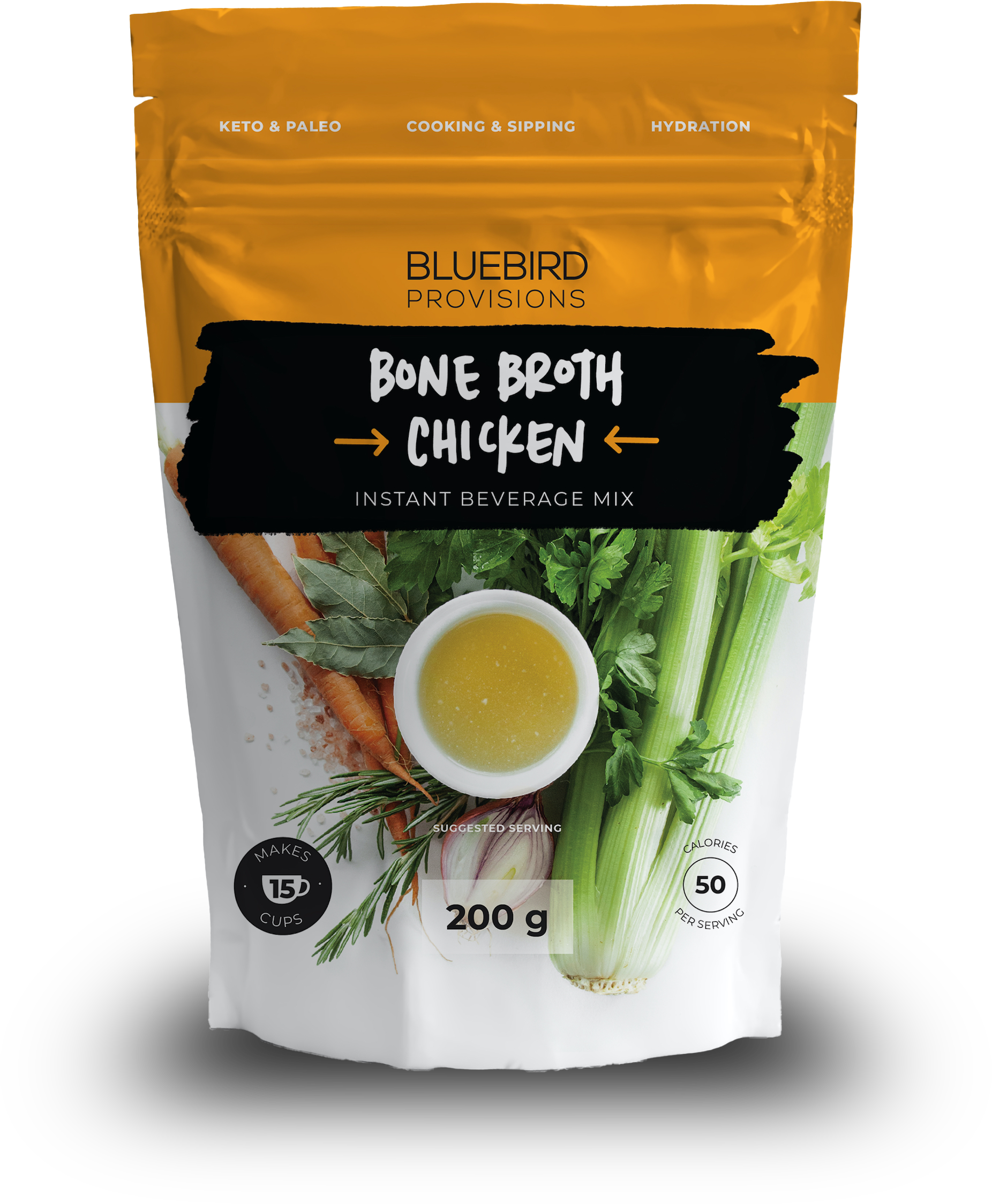
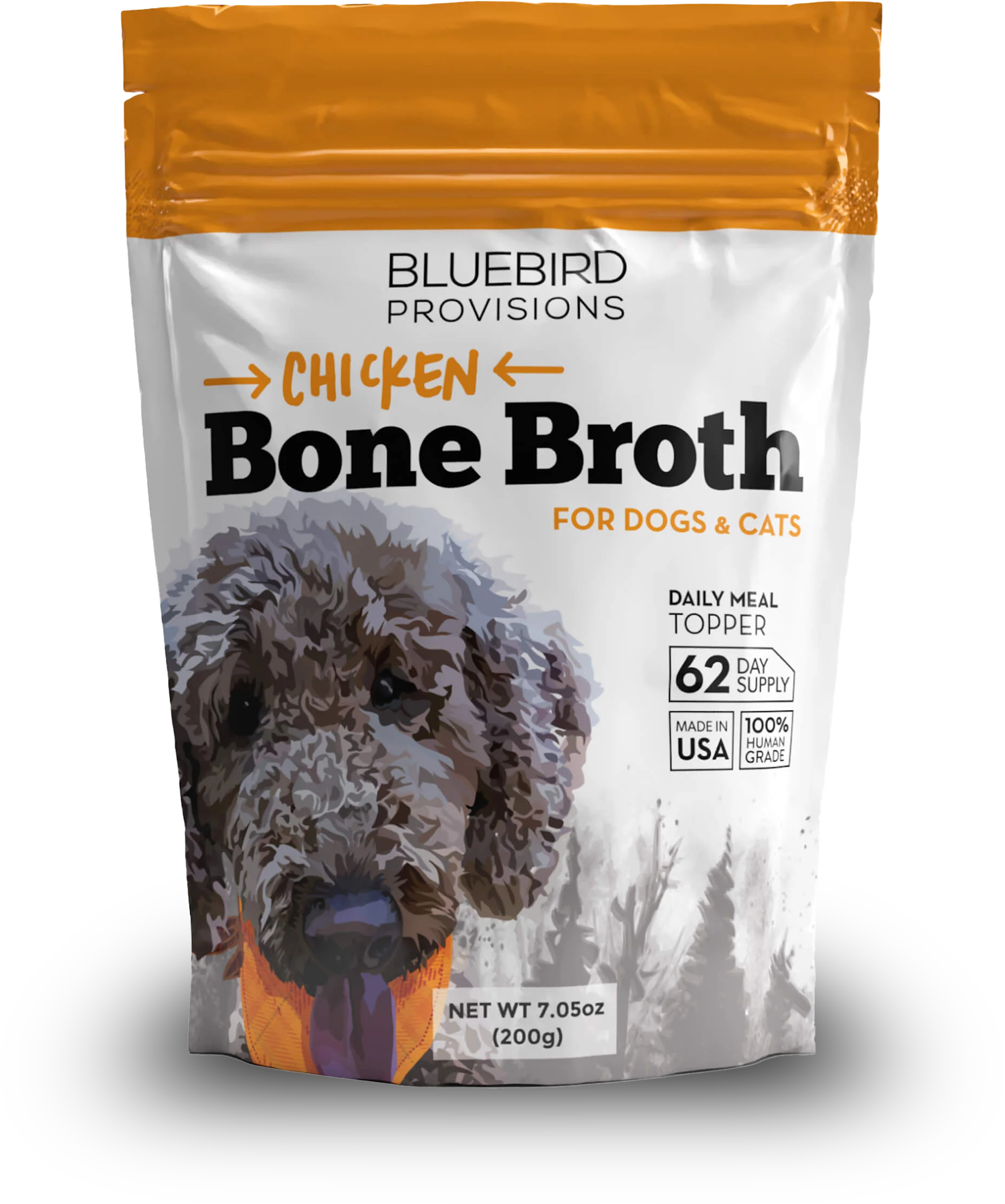
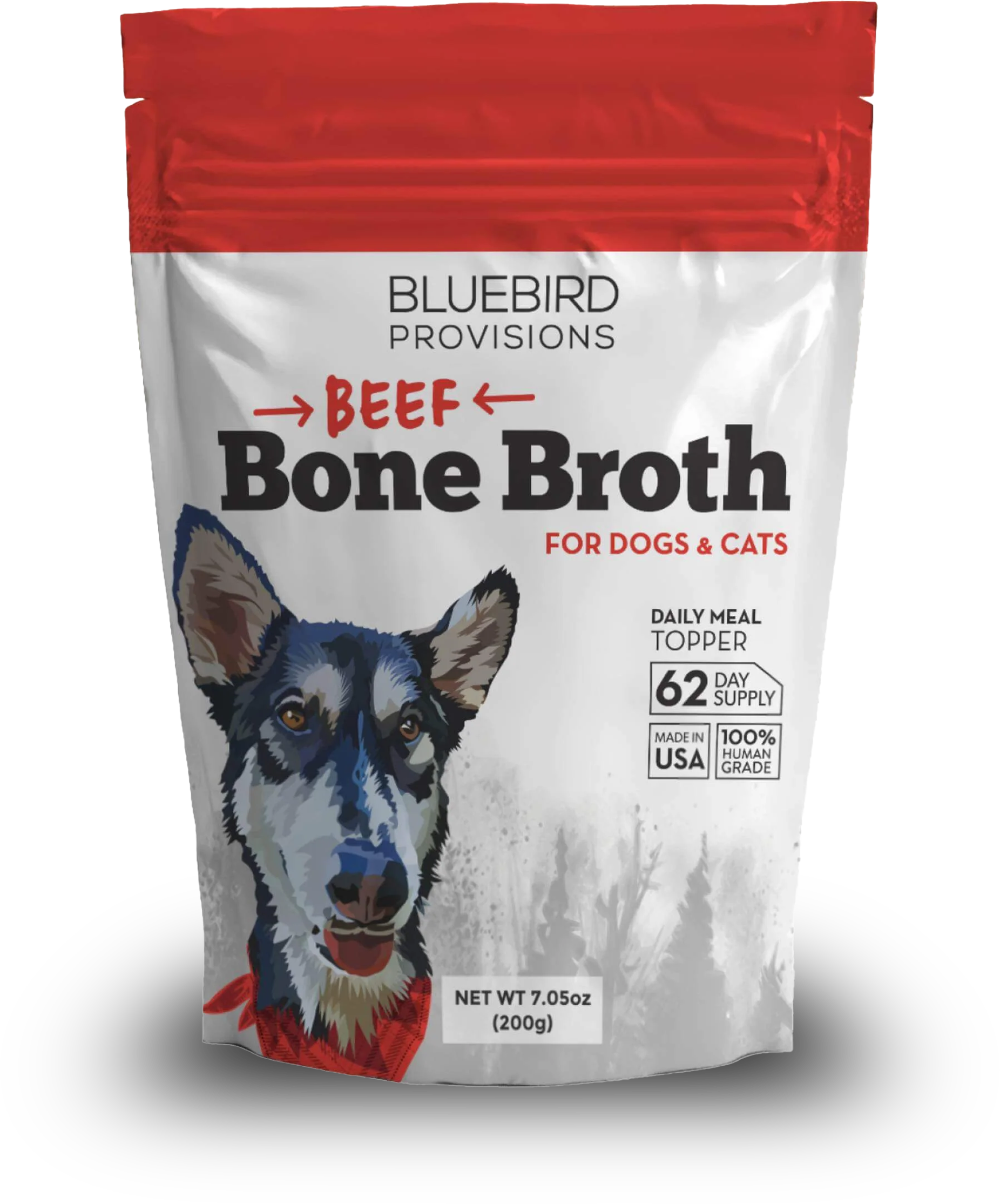
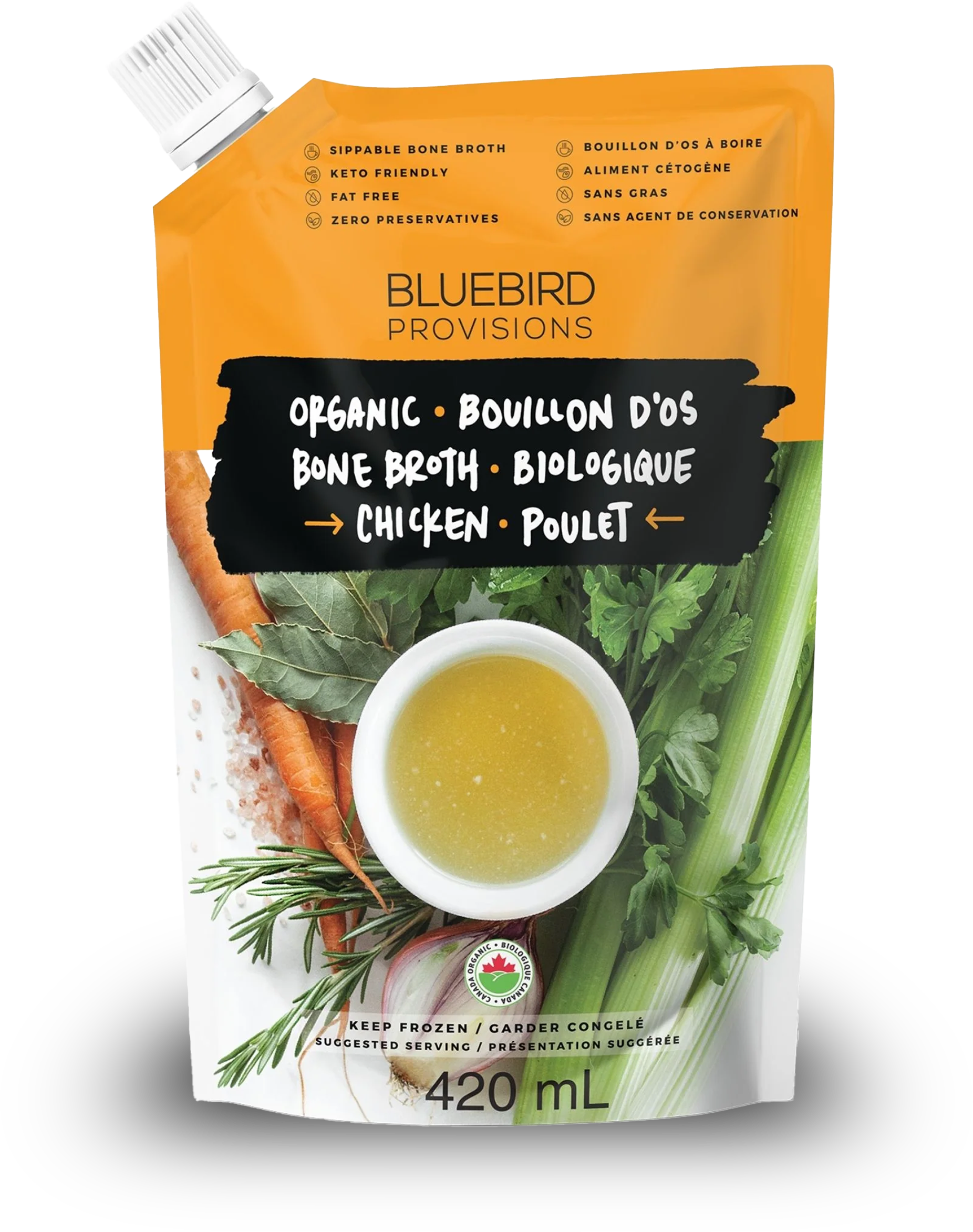
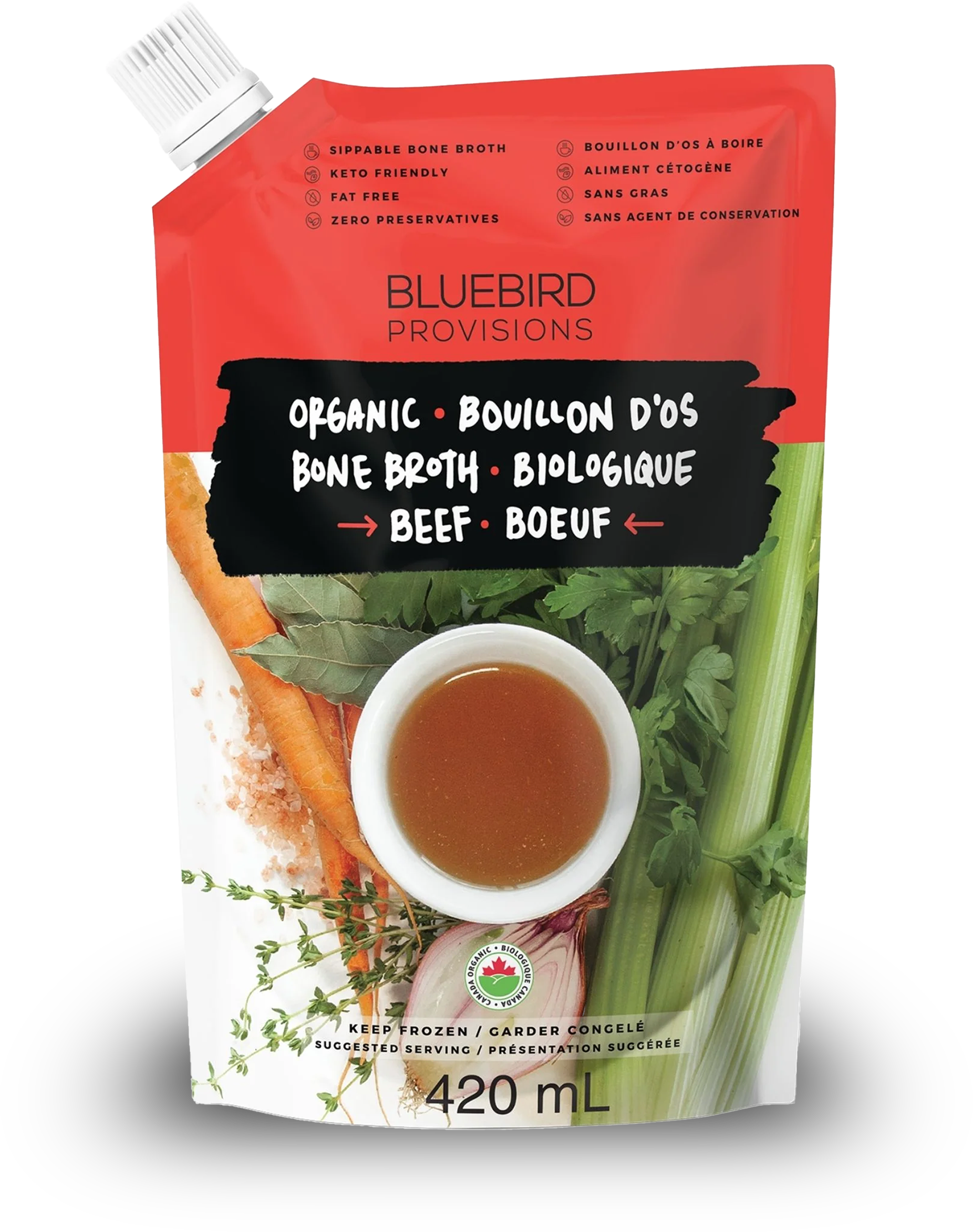

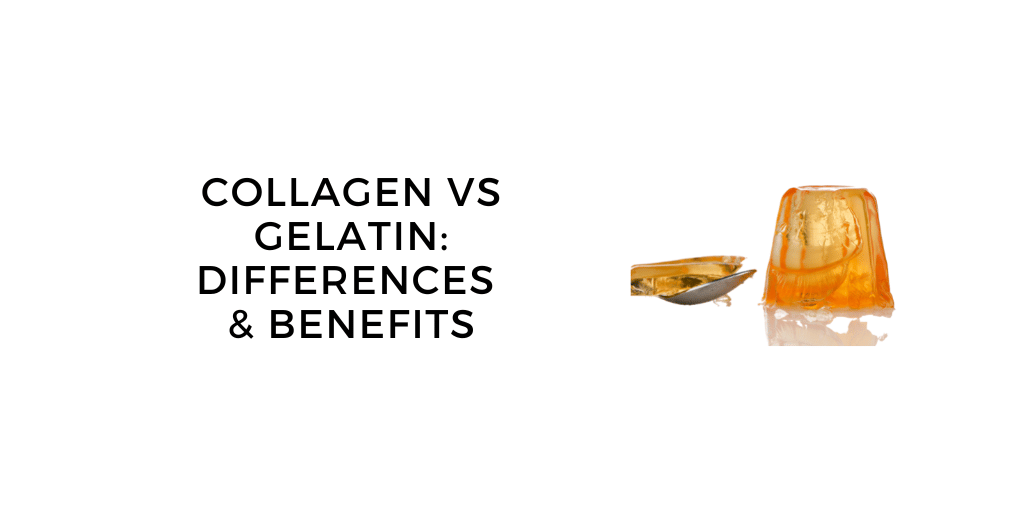
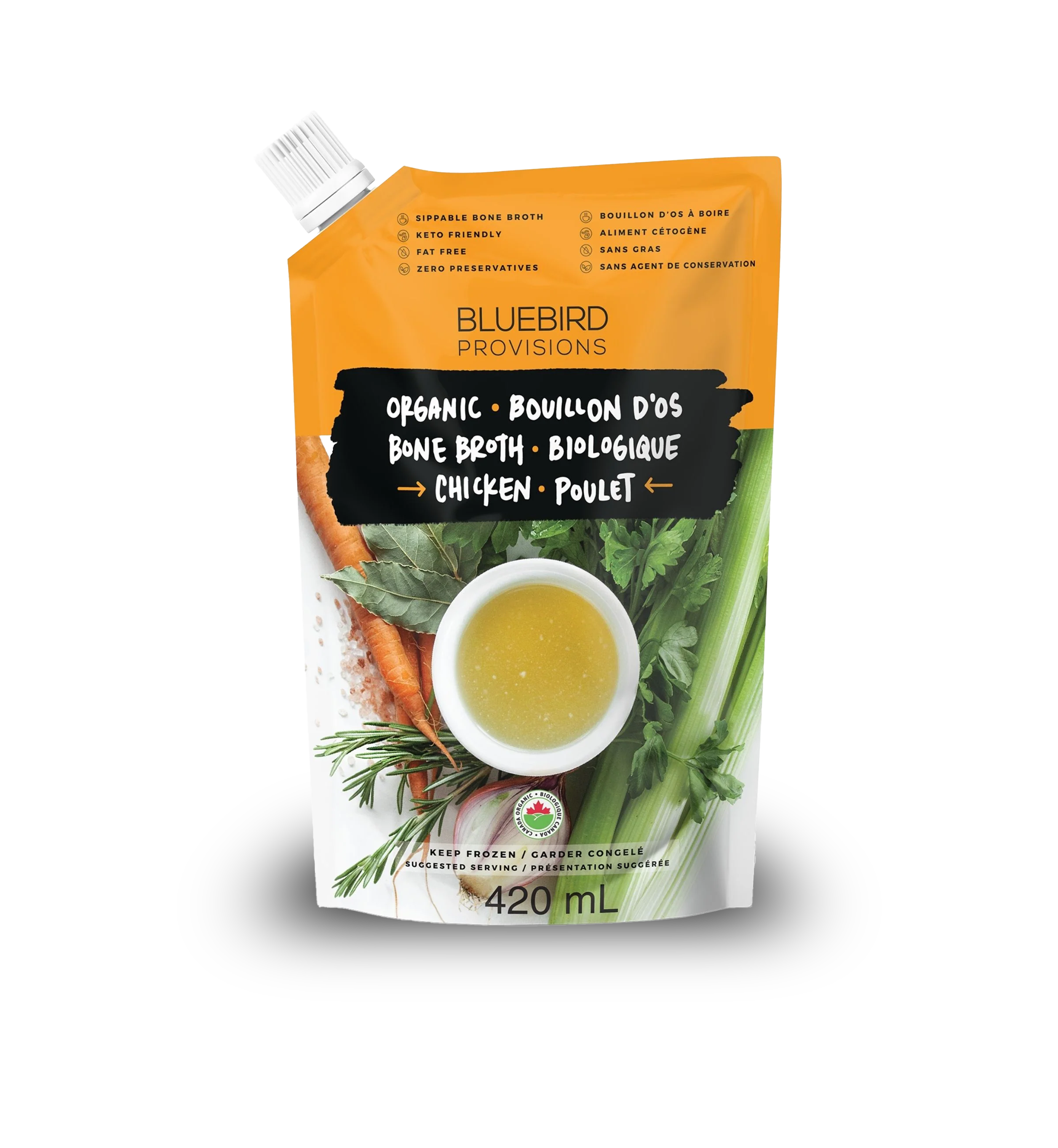
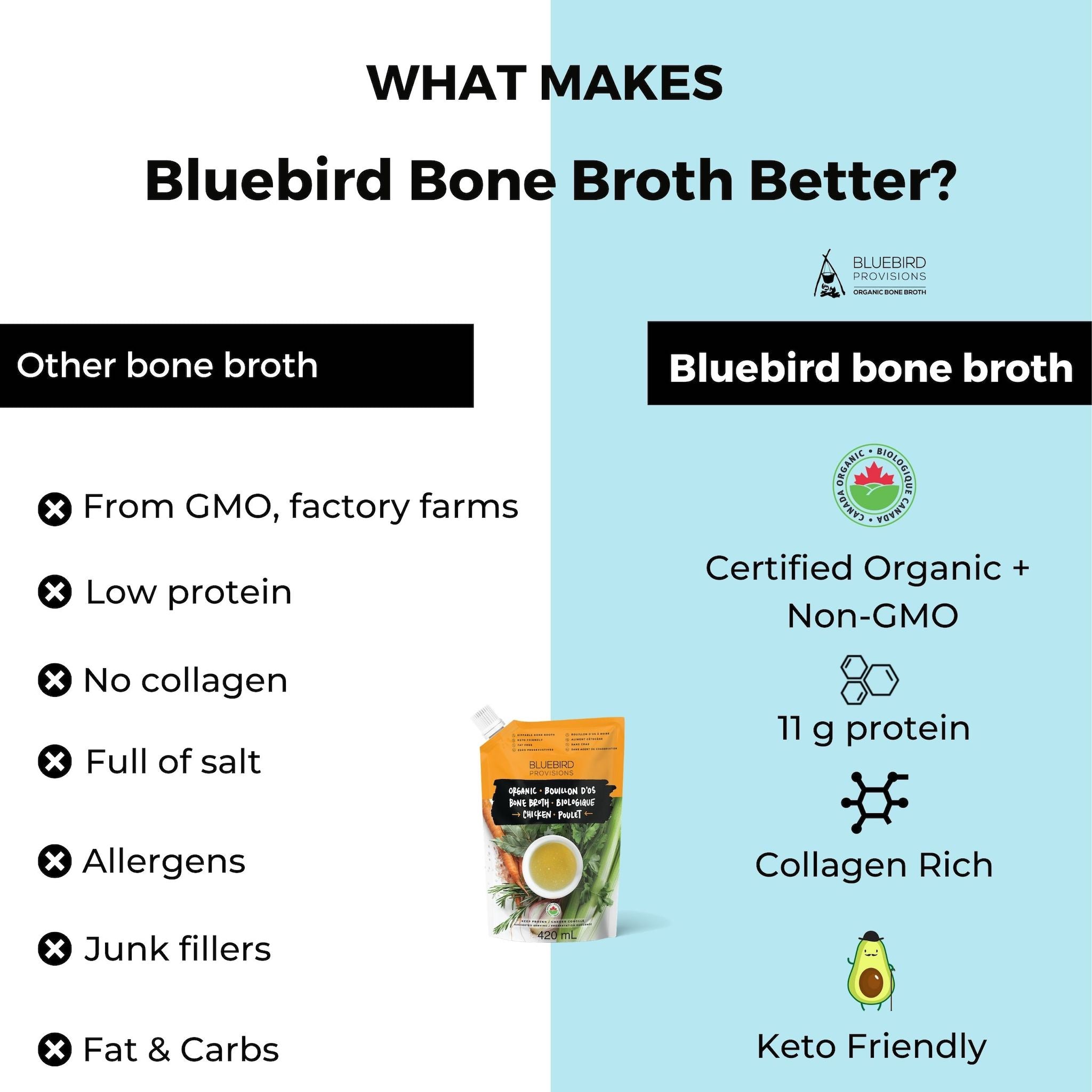
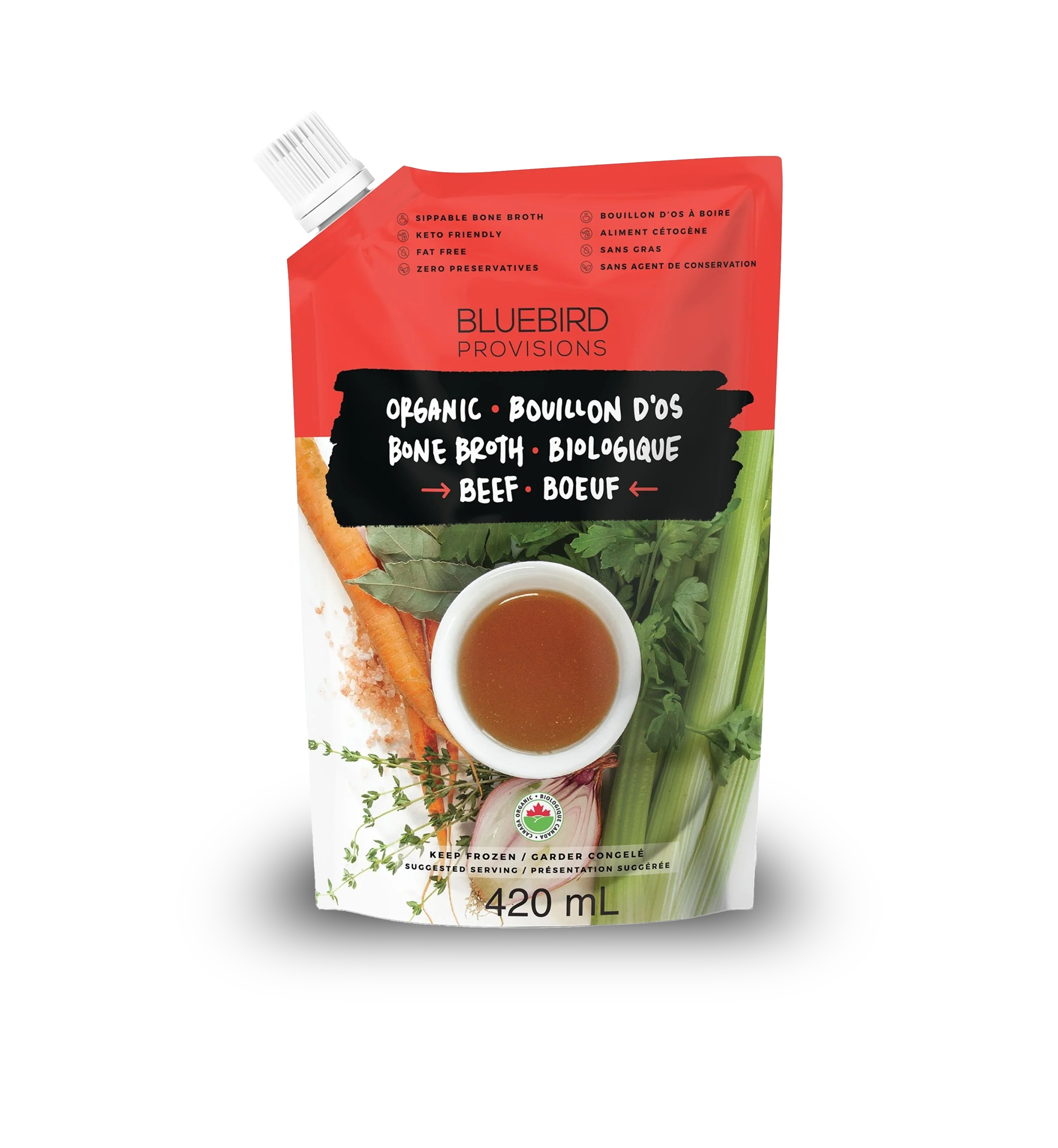
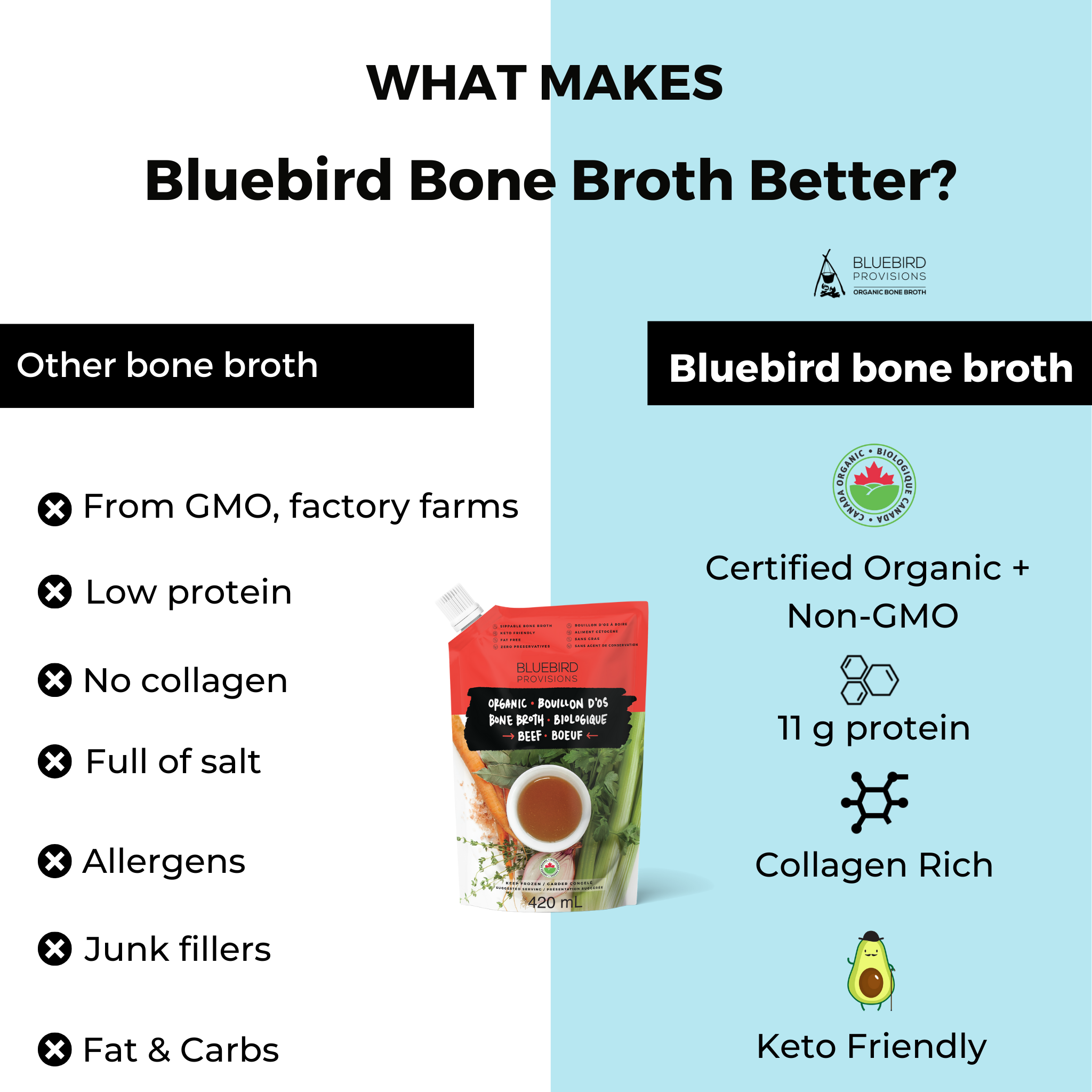
Leave a comment
This site is protected by hCaptcha and the hCaptcha Privacy Policy and Terms of Service apply.